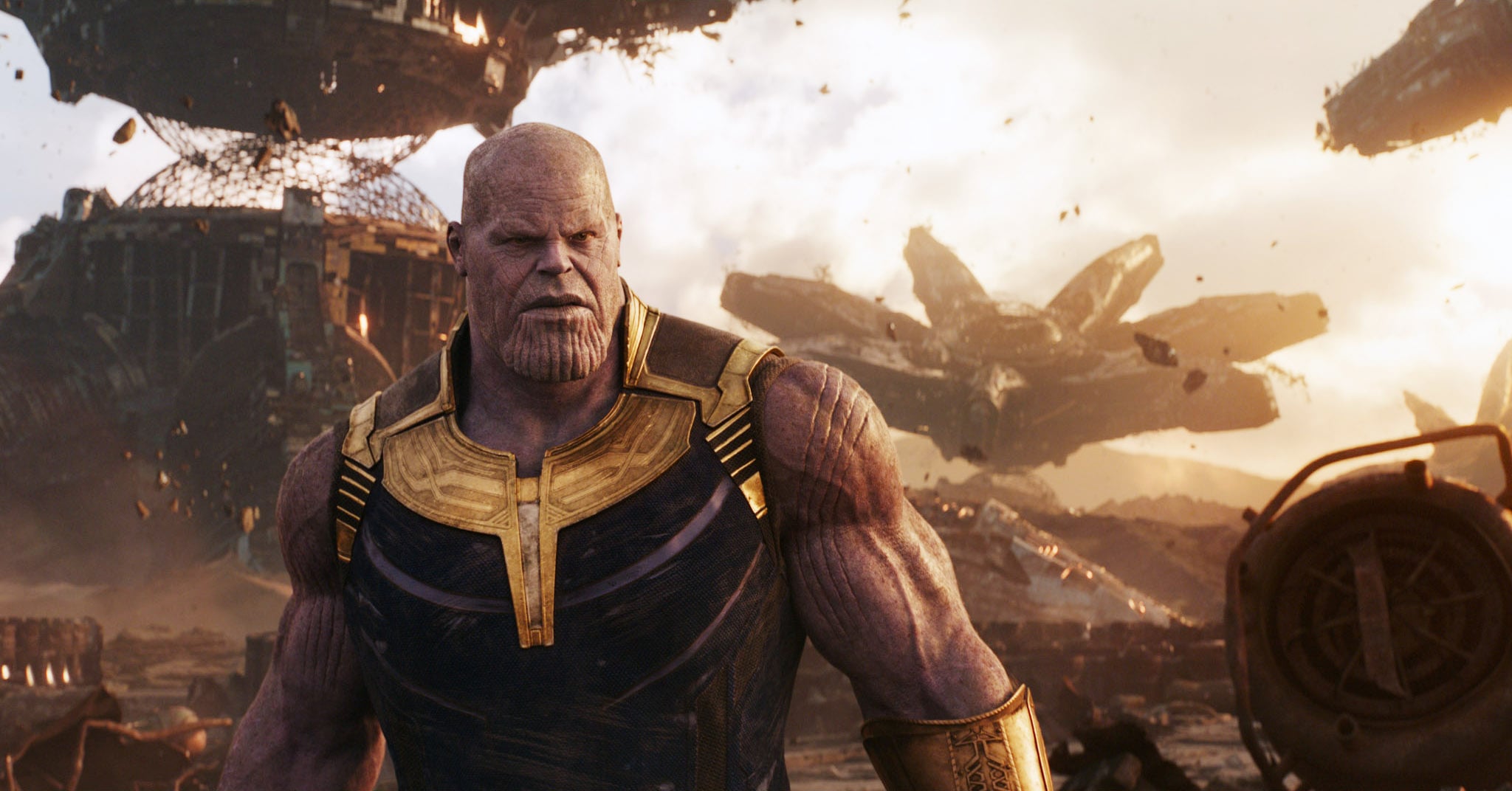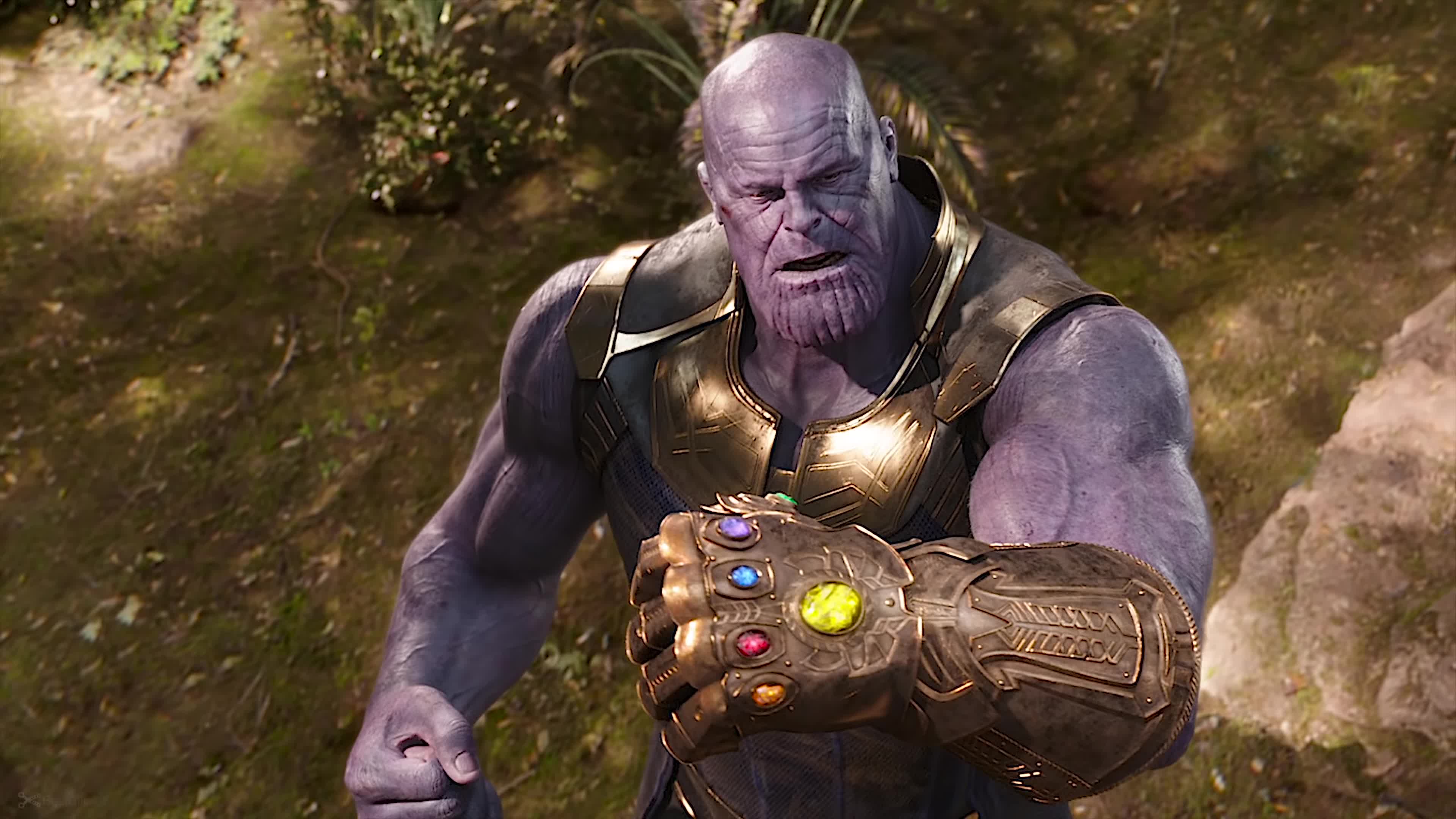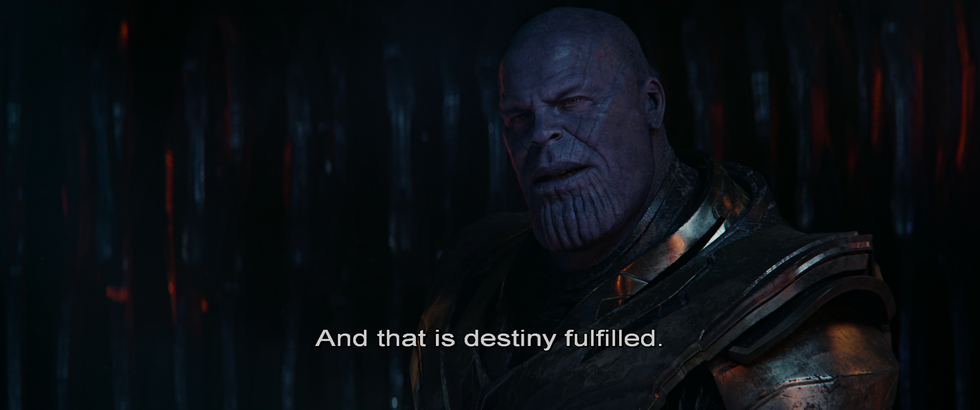Many words have been used to describe the Marvel Cinematic Universe, from "it's a great connected series" to "it's for little kids who can't take edgy, dark material". The fact remains that it has still resulted in becoming the biggest cultural phenomenon to grace the film world in quite some time. But every universe needs the ultimate villain for characters to challenge, and no one better than the guy who has a golden glove with six stones to wipe out half the universe.
After Thanos' introduction in The Avengers in 2012, fans were waiting to see how he would play a role in the proceedings to come. Theories went around, speculation videos were made, friends discussed amongst themselves, all as we neared closer and closer to Avengers: Infinity War. The result was spellbinding, as Josh Brolin brought a certain menace and unsettling nature to a universe that was comprised of fun jokes and entertaining action sequences. Every time he took a step on screen, you knew something seriously wrong was on the horizon...
...and yet, Thanos was given an almost sympathetic side when it came to his relationship with Zoe Saldana's Gamora. Granted, the movie isn't saying you have to now love the guy, but it's not saying to outright hate him either. His moments with Gamora actually help you listen a bit more to his reasoning and think about it. What if this *is* the right approach to things?

The mark of a villain can be twofold in any media form: either they can be portrayed as someone who is outright evil and wants to destroy everything in their path, or as the "hero" of their own story, who believes in their philosophies and thinks the actions are ultimately justified regardless of the toll. You can't do both at once as it would create a sense of imbalance hard to recover from. Maybe that's why splitting this story into two parts was the best idea. Thanos isn't a one-sided villain. He can be approached from multiple angles: the Titan who thinks the only action is the rash one, or the one who thinks no one will side with the ideology and the universe needs a total reset button. Simplistic as this sounds, it allows the writers to work with multiple versions of him.
Thanos in Infinity War has been through a lot. He has had to suffer the loss of his home world, sacrifice his daughter for a stone that'll help him wipe out half the universe and lose his children to battles across the galaxy (well, Earth primarily). By the end of the movie, Thanos has lost everything, and yet gained everything by snapping his fingers, though it causes him immense damage. And then...he's gone. This is the guy who shed a tear sacrificing his daughter. Not one for lack of compassion. Hence, we try to see it from his perspective and understand the harshness of it all. He doesn't want to do this. He has to.

Now throw in time travel! Four years prior to Avengers: Infinity War (so, Guardians of the Galaxy Vol. 1), Thanos is brutal. He wants power and ultimate domination of the universe, without carefully considering what the power is capable of doing. In this case, losing all his children and having a daughter who wants him dead in the future. Thanos hasn't lived that yet, and knowing about it wouldn't change much because seeing is different from living. His response to knowing that people aren't okay with what he did makes him realize that there will always be someone who'll rise up against him and instead considers just starting things from the point of origin. He doesn't have to do this. He wants to.
Hence, both sides of the coin have now been played. We have seen both possible portrayals of the same character. The criticism that could potentially be found in this is that going to something more simple after the complexities of Thanos is a cop out of sorts. Yet, at the same time, it fits in with the image we were introduced to of him. It's still him, just the version who's yet to understand the reality of things.

There is an unyielding sense of humanity to all this. It's like having a day that's not so great. Every now and then, there will be a moment on those days where you're not thinking straight and say/do something out of your character. It's a natural response in the heat of that moment. If someone interferes with your plans, you get agitated, annoyed or lash out because it's thrown everything off-balance. And yet, those simple little maneuvers are where Thanos succeeds as a character, and Josh Brolin acts the absolute bejesus out of both spectrums. His entire philosophy is about balance. An evened out world. Perfectly balanced, as all things should be. Too much to one side, or the other, and you reach tipping point.
From a writing standpoint, it's quite frankly a terrific approach. It creates dynamics for a character we forgot to consider, but shouldn't have forgotten about too soon. For Thanos, Endgame is tipping point. It's the cosmic scale to the other end of the spectrum, which interferes with his life prophesies. It's his inevitability. It's an interesting approach to it and (maybe) requires paying attention to every single detail of this character's presence, but in the end, it makes it worth the viewings and freeze frame pauses and in-viewing discussions and commentaries with people you know and who also watched the film. As Thanos might say:
- Everyone's Thoughts During "Avengers: Endgame" ›
- Why Avengers: Endgame Was An (Almost) Perfect Film ›
- Avengers Endgame Broke My Heart ›
- 'Avengers: Endgame' Is More Than A Movie, It's A Cultural Event ›



















